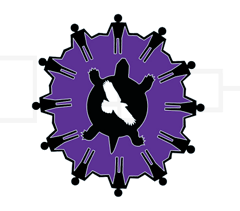Abstract
American Indians and Alaska Natives report disability at rates higher than the general United States population. This disproportionate prevalence of disability warrants further investigation. We therefore administered the World Health Organization Disability Assessment Schedule (WHODAS 2.0) to 119 Akwesasne Mohawk adults over 50 years of age residing along the St. Lawrence River in New York. We used exploratory factor analysis to summarize the 36-items comprising the WHODAS 2.0. The 7 factors retained by the analyses correspond to the 6 summary domains of disability, suggesting that the data are sound and measure the intended constructs. Our assessment concludes that WHODAS 2.0 is a valid tool for assessing disability within this American Indian population.
Recommended Citation
Begum, Thoin F.; Morse, Gayle Skawennio; Buchwald, Dedra; and Carpenter, David O.
(2022)
"Assessing the Psychometric Properties of the WHO-DAS 2.0 in an American Indian Community,"
Journal of Indigenous Research: Vol. 9:
Iss.
2021, Article 12.
Available at:
https://digitalcommons.usu.edu/kicjir/vol9/iss2021/12

